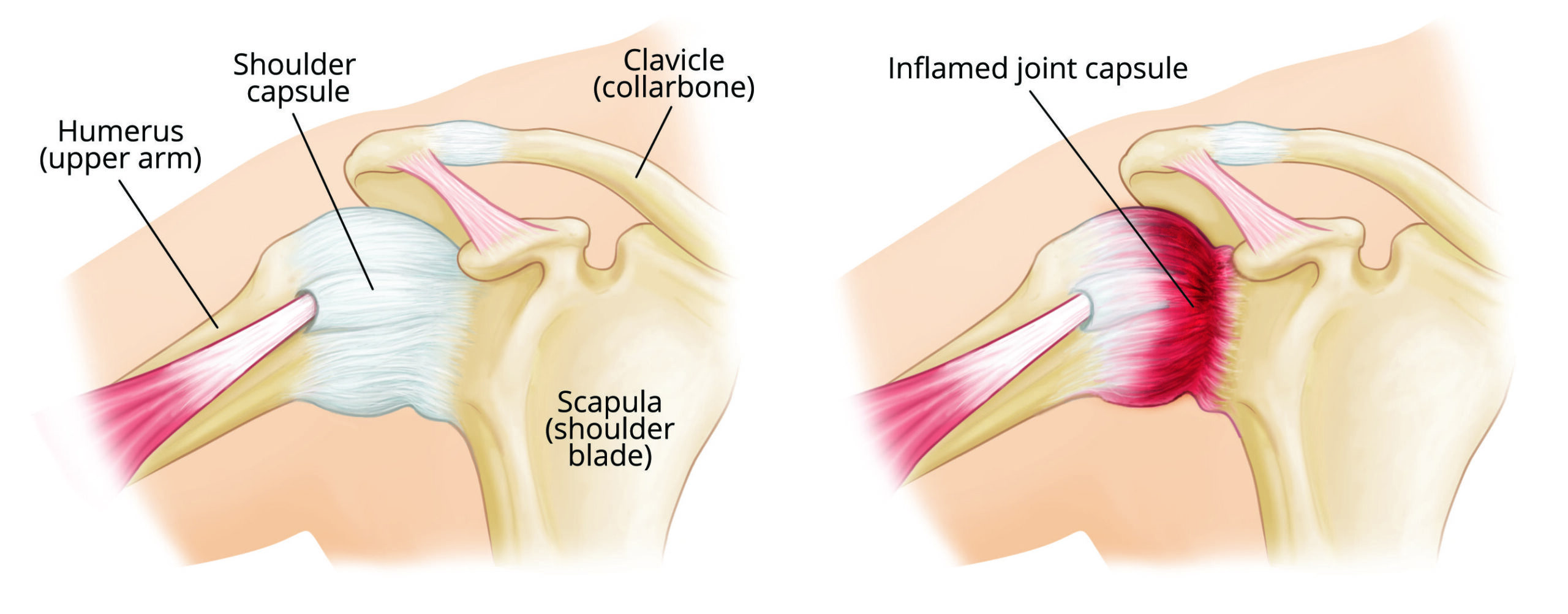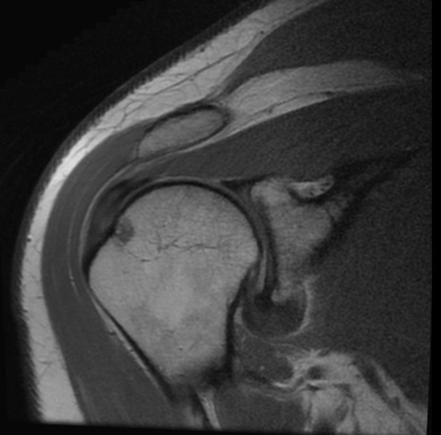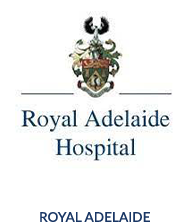What is a frozen shoulder?

Frozen shoulder (also known formally as ‘adhesive capsulitis’) is an inflammatory condition of the shoulder where the shoulder capsule and ligaments which surround the joint become tight and thickened. It has a number of possible causes, but often there is no identifiable reason for it to occur. As the name suggests, frozen shoulder leads to stiffness, but is also incredibly painful and debilitating.
The stiffness in the shoulder often means its sufferer is unable to reach the arm above shoulder height, or place the arm behind ones back.
What are the causes of a frozen shoulder?
Some of the known associations which may predispose an individual to developing a frozen shoulder include:
- Females
- Age 40-50 years
- Diabetes
- Thyroid conditions
- Predisposing shoulder conditions including recent trauma to the shoulder or treatment of the shoulder (operative or non-operative) where a sling has been used for a prolonged period.
What are the symptoms of a frozen shoulder?
- Constant dull aching pain in the shoulder, which may be more noticeable at night due to disturbed sleep
- Sharp pain when attempting to move the stiffened shoulder
- Impaired ability to perform everyday tasks including dressing, personal hygiene and driving
- Stiffness of the shoulder, worse when trying to rotate the arm
The stages of frozen shoulder are:
- Freezing – During the ‘Freezing’ stage, the shoulder may still have reasonable range of movement, but is very painful when moved. This stage can last for 3-6 months.
- Frozen – The ‘Frozen’ stage of the condition is characterised by worsening stiffness in the shoulder, with a gradual decrease in pain. The stiffness is often worst when attempting to rotate the arm outwards. This stage can last for 6-12 months.
- Thawing – The final stage of the disease process is the ‘Thawing’ stage. This is characterised by absence of pain, with a gradual improvement in the movement of the shoulder. There can be residual stiffness of the shoulder, and this is when an arthroscopic release for a frozen shoulder may be an option.
The entire disease process of a frozen shoulder usually takes 18-24 months to resolve.
How is a frozen shoulder diagnosed?

In addition to a careful clinical patient history and examination where the range of motion and individual muscles of the shoulder are tested, the following investigations are useful in diagnosing a frozen shoulder:
- X-ray of the shoulder – although the soft tissues are not shown, an x-ray is useful to exclude arthritis of the shoulder joint that can cause a similar presentation of pain and stiffness.
- Ultrasound of the shoulder – this is a useful technique to show tears in muscle and tendons which may cause a weakness and pain in the shoulder.
- MRI – the gold standard in imaging to show in detail the tendons and capsule around the shoulder, and help confirm the diagnosis of a frozen shoulder.
How is a frozen shoulder managed?

The majority of cases of frozen shoulder can be treated with good patient counselling and education in order to understand the disease course and expectations of the recovery process.
As the course of frozen shoulder takes 18-24 months to resolve and ‘melt’, patients can become despondent at the slowness of recovery.
During the ‘Freezing’ stage of the disease, the best management is pain control with analgesia and modification of activities.
There are several treatment options that can be trialled during the ‘Frozen’ and ‘Thawing’ stages of the disease, which include:
- Corticosteroid injections
- Physiotherapy – to guide a gentle stretching program to maintain mobility and strength in the shoulder
- Arthroscopic shoulder release – surgery for a frozen shoulder may be necessary when there is residual stiffness in the shoulder which is limiting function. To read more about the surgical treatment of a frozen shoulder:click here
My goals as a surgeon are to relieve your pain, restore your function, and return you back to doing what you love.
– Dr Raymond Yu
- Adelaide Orthopaedic Surgeon
- Adelaide Shoulder Surgeon
About
Dr Raymond Yu
Dr Raymond Yu is an Adelaide Orthopaedic Surgeon with post-Fellowship expertise in Shoulder and Elbow Surgery.
He specialises in orthopaedic surgery of the Shoulder and Upper Limb with a focus on modern keyhole and minimally-invasive techniques.
Dr Yu has a special passion for:
- Rotator cuff repair surgery
- Shoulder replacement surgery
- Shoulder stabilisation surgery
Dr Yu practices at







